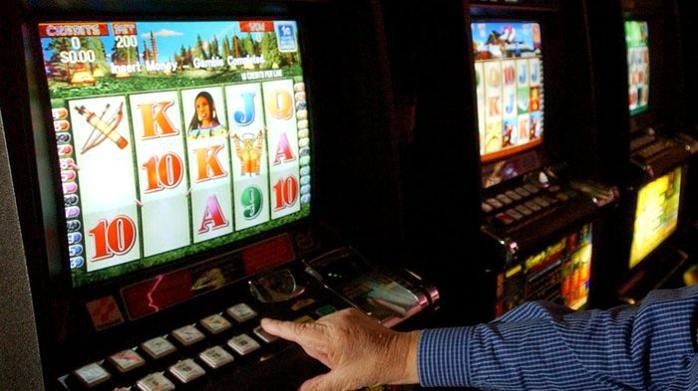Casino games have captivated players over the ages, progressing from simple pastimes to complex experiences that integrate fortune, skill, and amusement. From the ancient roots of gambling in societies including Mesopotamia and Rome to the dazzling corridors of contemporary casinos, the journey of these games uncovers much about our nature and our relationship with risk. mmlive As cultures have merged and technology has advanced, casino games have transformed, reflecting the changes in society and advancements in gameplay.
The earliest forms of gambling likely featured simple dice-based games and placing bets on the outcomes of sports competitions. Through the years, these early games grew into more structured games like table games, the game of roulette, and the myriad slot machines that populate the floors of casinos today. Each era brought its own set of rules, aesthetics, and social relevance. At present, casino games maintain their evolution with the rise of internet-based platforms, enabling players from various parts of the world to engage in a collective experience, further merging the traditional with the age of technology. cá cược thể thao tại mmlive
Early Origins of Gaming Activities
Gaming games have roots that extend back to old civilizations, where betting was profoundly entrenched in cultural traditions and cultural rituals. The initial known instances of gambling developed in ancient Mesopotamia around 3000 BC, including simple dice activities made from knuckle bones. These initial games laid the groundwork for more complex gambling activities, reflecting human beings’ instinctive urge to seek fortune and entertainment through luck.
As civilizations progressed, so did their betting pursuits. In ancient Chinese culture, around 2300 BC, objects were discovered that looked like early rudimentary versions of a lottery game game. More organized forms of gambling emerged in the ancient Roman civilization, where games of luck were a common pastime, often occurring in social events. The Romans developed multiple betting activities, which entailed dice and table activities, showing the widespread nature of gambling across different social strata.
With the movement of years, these early games contributed to the development of contemporary gambling activities. In the Middle Ages, playing card games became prevalent in Europe, paving the way for the organized gaming venues we know today. The transition from informal gambling to organized gaming in taverns and personal houses marked a significant change in how people interacted with games of luck, leading to the eventual establishment of gaming houses as specialized places for gambling.
The Growth of Modern Casino Gaming
The final 20th century marked a crucial change in the field of gaming, fueled by technological advancements and shifts in societal views towards betting. The emergence of computers and the World Wide Web altered the way gamblers interacted with their preferred casino games. Online casinos emerged, allowing enthusiasts to enjoy timeless casino classics like poker and 21 from the safety of their houses. This new online environment not only broadened availability to casino games but also drew in a younger demographic who found the ease and diversity attractive.

As online gaming gained popularity, so did advancements in gaming technology. The creation of sophisticated software and graphics converted conventional casino games into captivating experiences. Gamblers could now interact with authentic live dealers through live streaming, bringing the feel of brick-and-mortar casinos directly into their homes. This blending of in-person play with digital interfaces created a unique hybrid experience that elevated the social aspect of playing, allowing it possible for individuals to connect and challenge with others around the globe.
Furthermore, the growth of mobile gaming dramatically changed the casino landscape. With the widespread use of smartphones and tablets, gamblers can enjoy their favorite gaming options anywhere, anytime. Mobile apps offer a vast array of games customized for touchscreens, catering to the busy daily life of contemporary gamers. This accessibility has resulted in growing participation in gambling, driving the rapid expansion of the gaming industry. As a result, the future of casino gaming continues to evolve, adapting to technological advancements and shifting consumer preferences.
The Impact of Technology on Casino Games
The evolution of technology has significantly transformed casino games, enhancing the overall gaming experience for gamblers globally. With the introduction of the internet, online casinos emerged, allowing players to enjoy their favorite games from the safety of their own homes. This shift not only made casino games more available but also expanded the variety of games available, as online platforms could offer many different versions of traditional games without the physical constraints of brick-and-mortar establishments.
Mobile technology further transformed the casino gaming landscape. As smartphones and tablets became widespread, players can to engage in casino games whenever and wherever they want. This mobility has resulted in the development of dedicated mobile applications and optimized websites that offer smooth gaming experiences. Additionally, advancements such as live dealer games have brought the genuine feel of a casino into players’ living rooms, bridging the gap between physical and online gaming.
Furthermore, advancements in artificial intelligence and virtual reality are paving the way for the next generation of casino games. AI enhances game design and player interaction, creating tailored experiences based on user behavior and preferences. Meanwhile, virtual reality provides immersive environments where players can engage in a simulated casino setting, making the gaming experience more exciting and lifelike. As technology continues to evolve, the future of casino games looks promising, filled with endless possibilities for innovation and entertainment.



